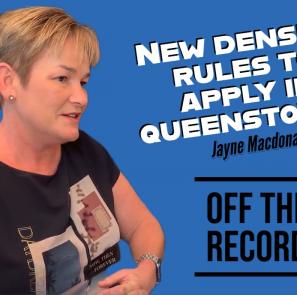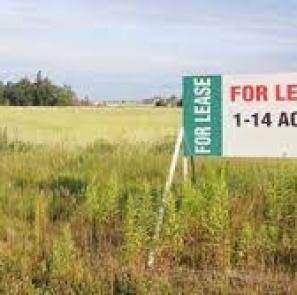Stay up to date with our latest News, Views & Resources by subscribing to our newsletter. We promise to provide you with quality content & the latest industry news.
Economic Disparity At The End Of A Relationship
How might this impact you?
As much as we like to think we are living in the modern day, there are still a large number of relationships that follow the more ‘traditional’ practice of having one party act as the ‘homemaker’, while the other acts as the ‘breadwinner’. If the relationship breaks up, economic disparity is likely to be an issue.
With the divorce rate in New Zealand sitting at around 50%, chances are you have friends and family members who have structured their relationship in this more traditional sense and have now separated. The result is often that the ‘homemaker’ is left in a worse position financially because they have been out of the workforce for a long time and will struggle to get back into their career.
The breadwinner, meanwhile, who could focus on their career during the relationship, is now earning at their full potential. This is economic disparity – one party is advantaged over the other.
One of the principles of the Property (Relationships) Act 1976 (PRA) is that a de facto relationship, civil union or marriage is a partnership of equals and that financial and non-financial contributions to that relationship are equal; the homemaker’s contributions are equal to the breadwinner’s. There is also a presumption of equal sharing of relationship property; but what about the earning potential of one party over the other?
If that earning potential has increased during the relationship, should that be considered an asset of the relationship or relationship property?
Can we ‘fix’ disparity?
Section 15 of the PRA allows for one party to be compensated if the income and living standards of the other party are likely to be significantly higher due to the ‘division of functions’ within the relationship – the role of breadwinner and homemaker.
Parliament acknowledged that an equal division of relationship property doesn’t always achieve fairness if one party is able to walk away with not only half the assets, but also a considerable income-earning ability, while the other has foregone theirs and supported the breadwinner in the process. While statistically the party left worse off after separation is almost always female, as the Prime Minister, Jacinda Ardern and her partner, Clarke Gayford have recently shown us, women can be breadwinners too and economic disparity can affect men.
Same-sex couples can also be vulnerable to economic disparity, which can arise in any relationship where one party has been able to progress their career while the other looks after the home.
The Law Commission recently reported that s15 has had limited success in achieving its objective. It found that sharing property equally doesn’t always result in an equal outcome. Following a separation, on average, mothers who are caring for children have their household income reduced by 19% while men in employment increase their household income by 16%. Economic disparity and how to address the issues arising from the more ‘traditional’ relationship roles is a significant focus of the Law Commission in its current review of the PRA.
Recent boost to claims
Economic disparity claims have been given a boost by the recent Supreme Court decision of Scott v Williams . This case involved a couple who structured their relationship in the ‘traditional sense’. Ms Scott, who had accounting and law degrees, put her career on hold to look after the couple’s children while Mr Williams built up a successful legal practice. When they separated after more than 25 years of marriage their incomes were vastly different.
The court ultimately found (after eight years of court battles) that in a long-term relationship, where there is the traditional split of roles between homemaker and breadwinner, and a significant disparity in income, an economic disparity claim can be presumed and compensation should be paid. The amount of compensation is determined on a case-by-case basis. There is no set method for determining the compensation, which does make it difficult for parties to agree.
Since s15 made its way into law in 2001, there have been about 100 cases go through the courts on this point, with only around 40% having been successful. Economic disparity remains a difficult, complicated and emotional topic for separating couples to discuss and on which to agree.
If you have separated and believe economic disparity is an issue, please talk with us to discuss whether this is a claim that may affect you, and how you either negotiate or defend such a claim.
A contracting out agreement (colloquially known as a ‘pre-nup’) may assist, if prepared properly from the outset. If you wish to achieve some level of certainty, it would pay to contact us.

Welcome to the Autumn 2026 edition of Trust eSpeaking.
We hope you find these articles thought-provoking, interesting and useful.
- Taxing the business of charities
- Trustees taking on liabilities of the trust
- Death, property and pre-nups

- Rent reviews in commercial leases: Methods of review
- Vendor supplied reports/disclosures: Can you rely on them?
- Property briefs: Proposed reform to the overseas Investment Act 2005 - Granny flat legislation just passed - No further restrictions on sunset clauses in agreements - Changes to earthquake-prone buildings assessment
The New Zealand property market can be challenging, especially for those buying in Central Otago, and we are seeing a steady rise in keen buyers exploring creative paths to climb...
Read More
On 4 July 2024, the Coalition Government introduced its plan to fix our housing crisis consisting of five interlocking actions.
Read More
Relationships can be complicated waters to navigate at the best of times, but it can become even trickier when thought needs to be given to relationship property matters.
Read More
Lending money to your children to buy their first home can be a generous and life-changing move, but it’s essential to consider the legal implications before proceeding.
Read More
The Trust Act 2019 outlines the obligations of trustees, and when taking on a trusteeship an individual or company must be aware of the risks involved.
Read More





https://www.youtube.com/watch?v=Ml7nmEmtvSY
Read More
Trusts Act 2019 also affects executors and administrators of wills
Read More
Creditor compromise regime: Another option in insolvency Guest editorial: The economy - tougher times ahead? Love, heartbreak and...death? Make a new will and EPA's when you separate New Incorporated...
Read More
https://www.youtube.com/watch?v=lZ6pC9agrrs
Read More

Senior Associate Scott Donaldson and Senior Solicitor Alice Milne have released episode 3 of their podcast, Off the Record.
Read More
Senior Associate Scott Donaldson and Senior Solicitor Alice Milne have released episode two of their podcast, Off the Record.
Read More
Duncan Anderson, Associate, Mactodd Lawyers, Queenstown
Read More
Senior Associate Scott Donaldson and Senior Solicitor Alice Milne have started a new video podcast where they address issues in law affecting Queenstown businesses.
Read More
Mental health in the workplace Co-ownership arrangements Checking your home is accurately insured Helping your family before you pass away Notifications of privacy breaches increase significantly Post script
Read More


Mann v Paterson Constructions Pty Ltd—Builders' Quantum Meruits Revisited' (2021) 37 Construction Law Journal 207 discusses recent changes to the law in Australia regarding restitutionary claims able to be made...
Read More
Buying off the plans New edition of To Trust or Not to Trust Climate Action Toolbox Post-Covid working world An independent trustee Postscript
Read More

Investment in Farming - A focus on syndicated farm investments The finite supply of water - Water easements Over the Fence - Crown Pastoral Land Reform Bill (submissions open),...
Read More


The government’s Budget, presented by the Minister of Finance the Hon Grant Robertson on 14 May has addressed, in the words of the Minister, “a 1-in-100 year health and economic...
Read More
These helpful checklists will guide you thought some of the most important areas you and your lawyer need to address when purchasing or selling a residential property and also when moving.
Read More
Also includes comprehensive checklists to you don't miss out any important step as well as details on how to protect your assets and when you also need to consider a...
Read More
Not all investments in NZ require consent from the Overseas Investment Office (“OIO”) but like many countries NZ has controls on overseas investment. Certain land is subject to OIO consent.
Read More
This practical guide designed to steer you through the essentials of Family Trusts including: Is a family trust for you? Protection given by a Family Trust. Planning for your life. Duties of trustees and how to run a trust. Costs.
Read More
Our local knowledge, experience and expertise will provide you with the support and advice you need for a successful property purchase, regardless of the size or complexity of the transaction.
Read More
We have produced a practical guide on buying a home or an investment property in New Zealand in Mandarin.
Read More
You’re catapulted into thinking about organising a funeral, whether it will be a cremation or burial and how to organise the day, and then you also need to think about...
Read More

